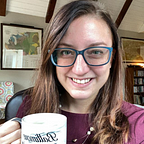Interdisciplinary collaboration helps bridge science with policy
Researching and writing a comprehensive and nonpartisan science note — often in less than a week — certainly can seem daunting, but a well-defined and refined interdisciplinary, collaborative process among policy fellows for Missouri Science & Technology (MOST) Policy Initiative makes filling that tall order possible.
By the time the 101st General Assembly reached its spring break, MOST policy fellows had already authored more than 50 legislative science notes at the request of policymakers, with requests almost evenly divided from both sides of the aisle. The science notes are a crucial element in MOST’s mission to bridge science with policymakers.
Non-profit MOST aims to improve the health, sustainability, and economic growth of Missouri communities by providing objective, nonpartisan information to Missouri’s decision-makers. Science note topics range from police accountability measures and anhydrous ammonia handling to school nurse seizure action plans and racial discrimination based on hair texture/style.
‘Robust’ science notes.
“The internal review process at MOST has been critically important to ensure the quality of the notes that we have produced over the last year,” says Brittany Whitley, PhD, MOST policy fellow for education and workforce policy.
Rachel Owen, PhD, executive director and co-founder of MOST, explains that the interdisciplinary collaboration among fellows and with researchers across the state “is integral to producing robust science notes for lawmakers.”
Whitley describes the process like this: “When I get a request for a science note, I read peer-reviewed articles and policy briefs, talk to researchers and practitioners, and then synthesize the information into a science note draft. Next, the draft heads to two other postdoctoral policy fellows for critical feedback.” She explains that the fellows are experts in other areas of Missouri policy (health, economics, agriculture, technology, environment), “which is helpful in several ways.”
“Not only can they flag jargon or areas that need to be explained more clearly, but the review process often highlights areas where specific policy areas — such as education — intersect with other research and/or policy considerations in Missouri,” Whitley notes, adding, “This usually leads to several revisions before creating a near-final draft that gets finally reviewed by our executive director. The result is a thoroughly vetted science note that we can confidently share with Missouri lawmakers.”
Collaborating despite COVID.
Josh Mueller, PhD, MOST policy fellow for health and mental health policy, says the interdisciplinary work was not hampered by the COVID-19 pandemic.
“Although it has changed how many of us work — I have been working from home for the past year — the work we do as fellows has still been incredibly collaborative,” Mueller says. His summary of the process clearly echoes Whitley’s points.
“We have at least four opportunities for collaboration and review built into our process,” he adds, starting with getting input from subject matter experts whenever possible.
“Speaking for myself as a policy generalist, it has been really helpful to talk through a topic area with someone who has expertise in that domain, as they will often alert me to things that I hadn’t considered and point me to resources that can get me up to speed,” Mueller explains.
Extra expert eyes.
After gathering the information and beginning a draft, the process sometimes involves co-authorship among several fellows, followed by review by fellows who did not write the draft and then review by Owen to ensure scientific integrity.
“With so many sets of eyes on each project, we can be more certain that the final product we provide is thorough, clear, and nonpartisan,” Mueller says.
Owen says the peer-review by colleagues and outside researchers is a requirement for each science note written and ultimately shared with lawmakers.
“This collaboration also helps our fellows learn about a broad range of topics and then use that expertise as they write their own science notes in the future,” she adds. “Personally, I know that I am much more well-rounded as a science policy expert because I review all of our science notes. As the director of our program, I believe this helps me to see nuance in every issue, and to showcase the value of our organization to stakeholders and supporters.”
Fellows laud the process.
Both Whitley and Mueller emphasize how the process has been especially beneficial for them.
“Almost a year into my fellowship,” Whitley says, “I am confident that the frequent and rigorous peer review process has made me into a more thoughtful and clear writer, and taught me so much about a range of policies and perspectives in Missouri.
Mueller again reinforces that observation, adding: “This collaborative process has given each of us exposure to policy topics that we might not otherwise consider, broadening our awareness of important issues in Missouri.”
